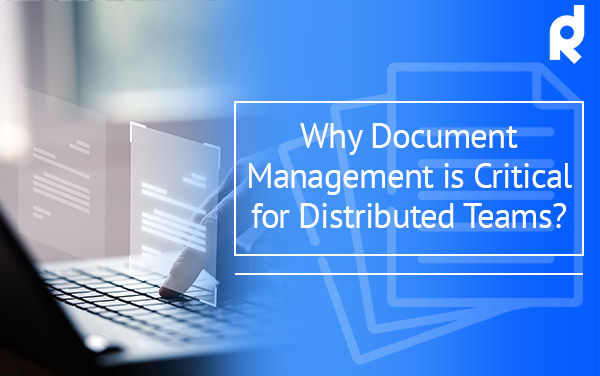What is ESG?
ESG is an acronym that stands for environmental, social, and governance. It is a term used to describe how a company manages its ecological and social responsibility and corporate governance. ESG has become an essential factor in the investment world and is also starting to impact the real estate market.
In this blog post, we will discuss what ESG is and how it affects real estate. We will also explore some benefits investing in properties with solid ESG ratings.
ESG criteria evaluate a company’s or organization’s performance on environmental, social, and governance issues. These criteria can assess a business’s or investment’s sustainability. For example, investors may look at the developer’s environmental and social responsibility track record when considering investing in a real estate development project. If the developer has a good ESG rating, the project may be more likely to be successful and positively impact society.
ESG and the Real Estate Market

The link between ESG and real estate is becoming increasingly evident. For example, a company’s carbon emissions can directly impact its bottom line. In addition, how a company treats its employees can affect its reputation and, as a result, its ability to attract tenants and customers.
As more and more investors consider ESG factors when making investment decisions, we are seeing a shift in the real estate market. Properties with solid ESG ratings are becoming more desirable, and those with poor ratings are becoming less attractive.
There are numerous benefits to investing in real estate projects with solid ESG ratings. These projects tend to be better managed and have lower risks. They also tend to generate higher returns and create more social and environmental value. Additionally, they often have higher occupancy rates and are less likely to experience vacancies.
Finally, ESG-rated real estate tends to outperform their unrated counterparts. In addition, investors who focus on ESG criteria are often seen as more responsible and socially conscious. This can help attract capital from other impact-minded investors and ultimately lead to a higher valuation for the company or project.
ESG is quickly becoming an essential factor in the real estate market. Investors who are considering a real estate investment should make sure to research the ESG ratings of potential projects. Doing so can help ensure the investment is well-managed and generates strong returns.
The long-term goals of ESG

Many people think that the long-term goals of ESG are to make a property more “green” or improve its energy efficiency. While these are undoubtedly important goals, they are not the only objectives of an ESG strategy. In fact, the ultimate goal of an ESG strategy is to create value for all stakeholders – including tenants, investors, employees, the community, and the environment.
An ESG strategy should be tailored to the specific needs of each property. However, some common elements are often included in an ESG strategy. For example, many strategies focus on reducing energy consumption and carbon emissions. Other goals may include improving water efficiency, creating healthier indoor environments, and increasing the use of renewable energy.
What is net-zero, and why is it important?

Net-zero is a term used to describe a property or development that produces as much energy as it consumes. In other words, the property is self-sufficient and does not rely on the grid for power. There are many benefits to achieving net-zero status.
First, it can dramatically reduce a property’s carbon footprint. Second, it can save money on energy costs. Finally, it can increase the property’s resiliency in the event of a power outage.
Achieving net-zero status is becoming increasingly important as the effects of climate change are felt more and more around the world. In fact, many cities and states are beginning to require that new developments be built to net-zero standards. As the demand for net-zero properties increases, we will likely see a corresponding increase in investment in this type of real estate.
How to get your buildings to zero emissions
Getting your buildings to a net-zero emission is the goal. That way, you are not contributing to the problem but being part of the solution. To achieve this, we first need to make our buildings more energy-efficient.
This can be done in several ways, such as retrofitting, installing solar panels, and using LED lighting. Once we have made our buildings more energy-efficient, we can then start to look at generating on-site renewable energy. This can be done through solar PV, wind turbines, and CHP. Finally, we need to offset any remaining emissions through carbon credits or other means.
Achieving net-zero is not only possible but also necessary if we want to avoid the most catastrophic impacts of climate change. The good news is that there are many ways to get there, and the real estate sector is leading the way.
The push toward net-zero in real estate is a growing trend in real estate that will only continue to increase in popularity; investors are looking for these types of buildings more and more. So it is worth investing in sustainable principles for the resilience of your property.
How to start your ESG journey and reporting
The first step is to decide which ESG factors are most important to your company or project. Once you have done that, you can begin to collect data on those factors. This data can be gathered internally or externally. Once you have collected the data, you need to start reporting it.
This is where Refined Data can help you. We can not only provide you with the data you need but also help you report it clearly and concisely.

We utilize your current data to identify areas for improvement, such as energy usage, water consumption, and waste. You may get a more accurate picture of your portfolio’s impact by validating the data and looking for gaps and redundancies.
ESG reporting is not a one-time event; it is an ongoing process. As your ESG journey progresses, you will likely find new and better ways to collect and report data. But the most important thing is to get started today.
ESG, GRESB, and other reporting bodies face significant difficulties in providing data. We aggregate and check the data of individual properties and your entire portfolio before turning it into simple regulatory reporting.
Sustainability has become one of the most critical issues of our time, and ESG reporting is an essential part of any ESG strategy. It helps track progress, identify areas for improvement, and communicate achievements to stakeholders. Refined Data can help you every step of the way.
Learn more about Refined Data’s solution here.

Join us at the Inaugural ESG & Decarbonizing Real Estate Forum
If you’re interested in learning more about ESG and how it affects the real estate market, be sure to join us at the Inaugural ESG & Decarbonizing Real Estate Forum, taking place July 12-13 in Dana Point, CA. This two-day event will bring together industry leaders to discuss the latest ESG trends, net-zero strategies, and more.
At this event, we’ll look at all of the issues surrounding ESG, including development and investment impacts, criteria for owners, managers, developers, and builders; best practices to improve your ESG score; how to handle disclosures and reporting; residential and commercial markets effects; as well as closing the gap between profitability, sustainability, and making genuine commitments to move towards a net-zero future.
Register now and join us to learn more!




